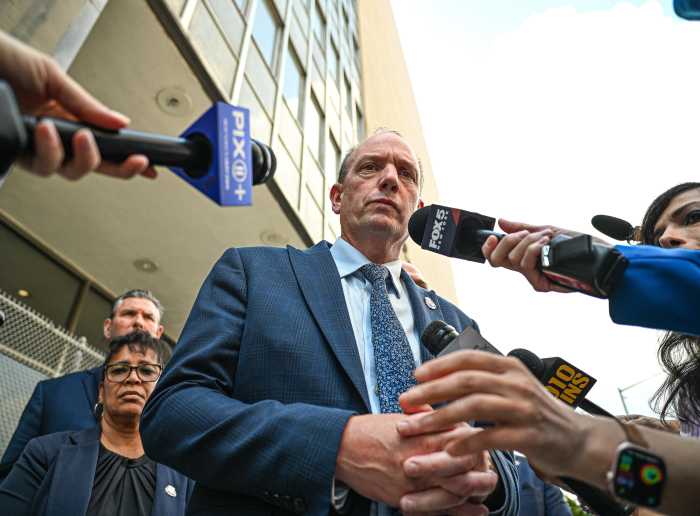
No soil? No problem.
A group of Bronx teens helped create a 1,300-square-foot hydroponic farm designed to grow 25,000 pounds of produce a year in one of the city’s toughest “food deserts.”
The project is designed to teach students about sustainable agriculture, advocacy and nutrition while building their science, technology, engineering and math (STEM) skills.
“Watching the students blossom and change through the program even in this short period of time is really impressive,” said Katherine Soll, CEO and director of Teens for Food Justice, a nonprofit that helped students build the indoor farm with a $127,000 grant from the Green Mountain Energy Sun Club, as well as other donors. “They have really grasped all the concepts of the farm, how the systems work and how it is different from growing in soil.”
Hydroponic farms use water and a nutrient solution to grow food. The farm was built inside a former lab at the DeWitt Clinton Campus, located off the Mosholu Parkway, between October and January, Soll said.
A celebration Saturday marked the end of the farm’s first year and signaled its ability to go into full production mode.
The goal is to grow enough food to use in the school’s cafeteria, distribute to food pantries and sell at a low cost to the community.
The farm can produce various types of lettuce, Swiss chard, bok choy, tomatoes and cucumbers along with herbs as such basil, thyme, oregano and cilantro.
“Healthy food is not readily accessible and affordable in that area, which is why we refer to it as one of the food deserts,” said Soll.
Students like Jasmely Torres work at the farm several days a week through an environmental science class. They plant seeds and measure the pH balance of the nutrient solution.
Torres has also given out samples of the fresh produce to students in the cafeteria.
“A lot of the kids eat salad but don’t really like the salad in the cafeteria,” said the DeWitt Clinton High School senior. “They try this and tell us how different it tastes. And we tell them we just grew it.”
Torres, 18, said the program also gives students important hands-on work during the school day.
“Usually all you touch during the time you are at school is paper and pencils,” she said.
Teens for Food Justice has worked with several schools throughout the city to build sustainable agriculture projects.
“We are excited to build this program here,” Soll said. “A lot of the students are struggling to achieve academically. They are getting an immersive experience in STEM skills.”
Students in an after-school program focus on nutrition, healthy eating and cooking. They become leaders, sharing that knowledge with classmates, their families and the community.
“It can be tough because kids like to eat sugary stuff and fast food,” said 10th-grader Teresa Martinez, 15, who participates in the after-school program on the campus. “But I tell them it won’t hurt to try new things.”





































